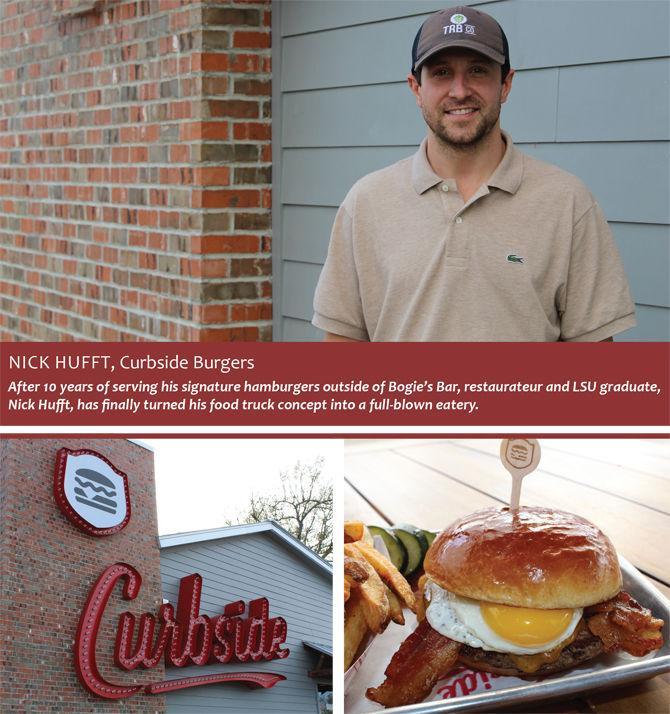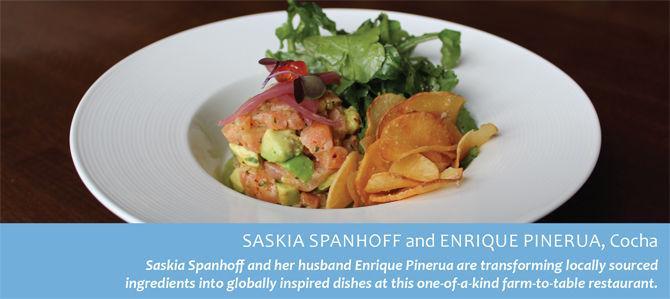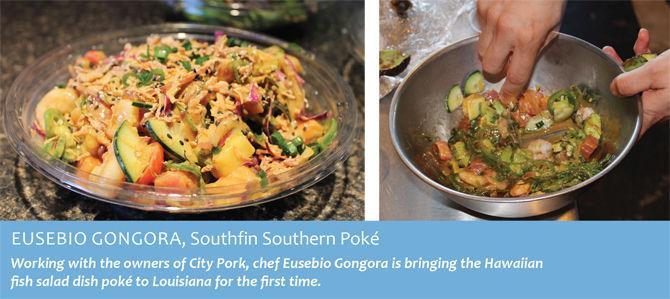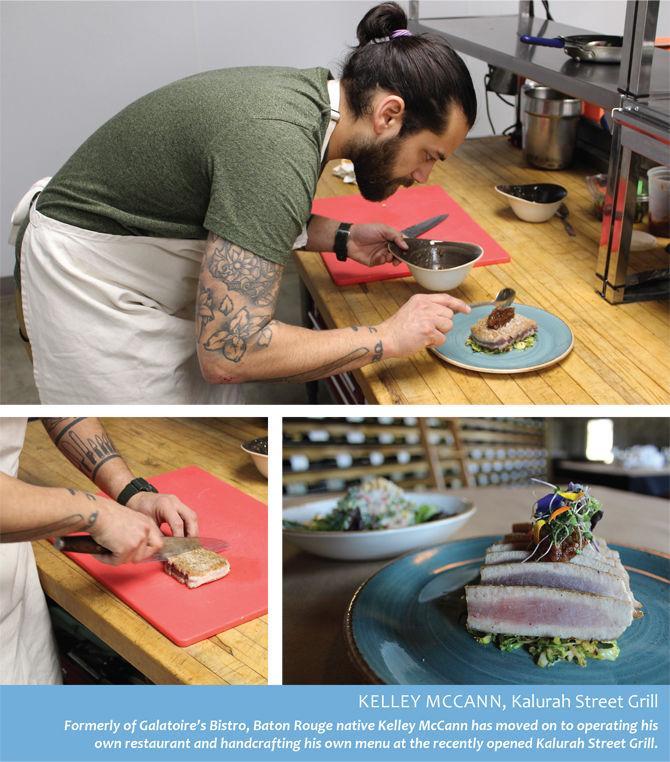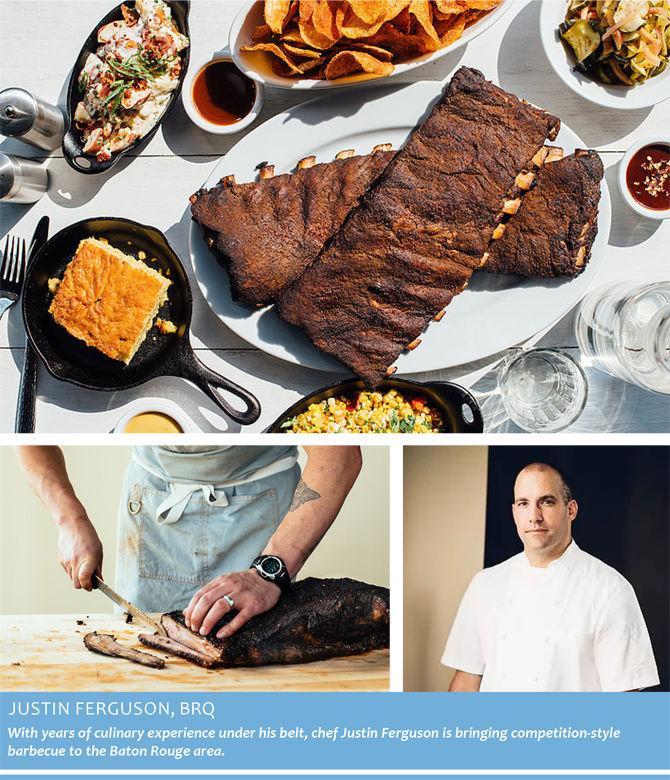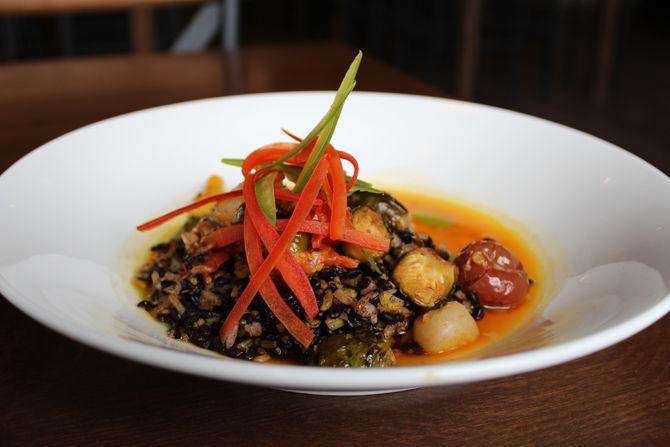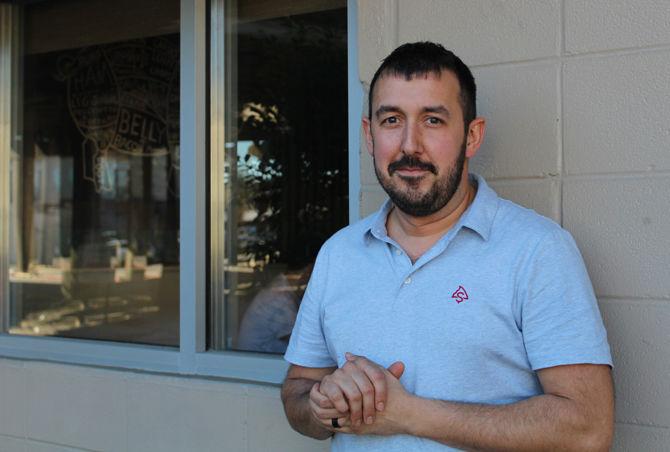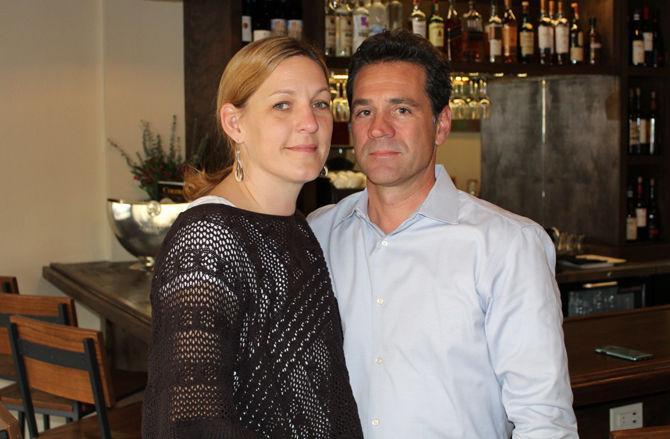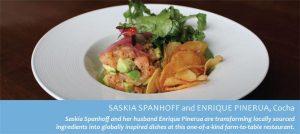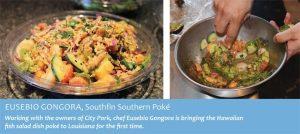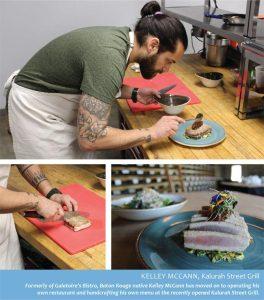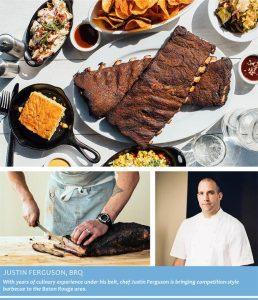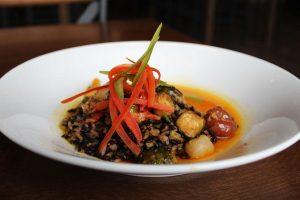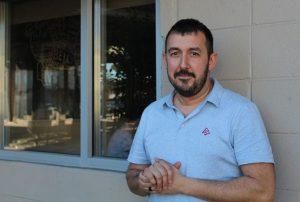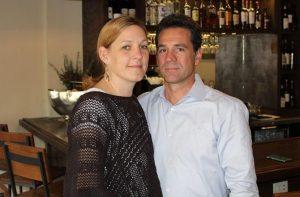LEGACY Magazine sat down with the creative minds behind some of the recently opened or soon-to-come eateries to find out what’s happening behind the kitchen doors.
Nick Hufft, Curbside Burgers
After 10 years of serving his signature hamburgers outside of Bogie’s Bar, restaurateur and LSU graduate, Nick Hufft, has finally turned his food truck concept into a full-blown eatery.
LEGACY MAGAZINE: How did Curbside Burgers start?
Hufft: The original food truck opened in 2005 outside of Bogie’s on East Boyd Drive. Being from New Orleans, you see late-night food everywhere, but there was no late-night food in Baton Rouge other than your McDonald’s, Taco Bell or Burger King. I saw a niche of people that wanted a quality meal after hours, so I went to school during the day and worked the food truck at night.
L: Did you have a culinary background before you opened the food truck?
H: No, but I always loved cooking. You need to have that passion to open a food truck. You don’t realize until you make the investment that it’s not all that glamorous. It started out as a business; I saw a market that needed to be filled. We were going to serve food, make some money, graduate and go sit behind a desk. But after a couple of months, I slowly started liking it.
L: What’s your best-selling burger?
H: The K.G.B. It has praline bacon, sharp cheddar and an egg. My personal favorite is the GC2. It’s got a pepper jack fondue with green chilis, bacon, Fritos and cholula mayo. curbside-burgers.com
Saskia Spanhoff and Enrique Pinerua, Cocha
Saskia Spanhoff and her husband Enrique Pinerua are transforming locally sourced ingredients into globally inspired dishes at this one-of-a-kind farm-to-table restaurant.
L: What’s the philosophy behind Cocha?
Spanhoff: We realized a need for a different type of cuisine here in Baton Rouge. There are a lot of great Louisiana concepts relying heavily on the traditions of Louisiana food, but not a lot of global-style cuisine. We felt Baton Rouge was ready for a little more diversity.
L: Where are your ingredients sourced from?
S: Seventy-five percent of what we use in this restaurant is coming from local sources. We are really proud to be supporting the local community. With that being said, because we have a global menu, we do need to import some of our ingredients from other areas. A lot of our dishes are inspired by Venezuelan, Korean and Caribbean flavors. cochabr.com
Eusebio Gongora, Southfin Southern Poké
Working with the owners of City Pork, chef Eusebio Gongora is bringing the Hawaiian fish salad dish poké to Louisiana for the first time.
L: What will Southfin’s menu feature?
Gongora: Our main focus will be on poké bowls to start. We’ll have four or five different bases, four or five different proteins, and a bunch of toppings, sauces and garnishes that you can toss in there. Being the first poké restaurant in the state, we really just wanted to showcase what it was all about.
L: How did Southfin’s concept originate?
G: We thought poké would be a perfect fit for Louisiana because it’s very similar to gumbo in story and style. ‘Hey, I have this scrap piece of fish left over. I’ll cut it up, put some soy sauce on it, and enjoy.’ With all of the fresh gulf seafood around here, it made a lot of sense. facebook.com/southernpoke
Kelley McCann, Kalurah Street Grill
Formerly of Galatoire’s Bistro, Baton Rouge native Kelley McCann has moved on to operating his own restaurant and handcrafting his own menu at the recently opened Kalurah Street Grill.
L: What inspired you to pursue a career as a chef?
McCann: I’ve only had one job outside of the restaurant industry in my entire life. I’ve always been around restaurants since I was really young; my mom worked in a restaurant too. I’ve always been really drawn to the atmosphere. My real passion for food came about after I started working at Galatoire’s with chefs that made me realize how much you can succeed if you have a genuine passion for what you’re creating.
L: How did you go about crafting the menu?
M: We really wanted to offer something unique and different from your typical Baton Rouge fare. It’s given me an opportunity to showcase some things that I’ve had in my back pocket from my years at Galatoire’s. More than anything, I want to build Baton Rouge’s culinary scene. If we all keep doing the same thing, there will be no progress. kalurahstreetgrill.com
BRQ
With years of culinary experience under his belt, chef Justin Ferguson is bringing competition-style barbecue to the Baton Rouge area.
L: What inspired BRQ’s concept?
Ferguson: It originated from a mixture of growing up in south Louisiana and my love for competition-style barbecue. That’s a style of barbecue that is truly all about the meat and the rub; it’s not about piling on tons of sauces. We also wanted to bring each region of barbecue, from South Carolina, North Carolina, Tennessee and Texas, down here to Baton Rouge.
L: Will BRQ be using locally sourced ingredients?
F: We want to emphasize that everything we’re doing is local. We’re trying to source from as many local farmers as we can. I’ve worked on quite a few farm-to-table restaurants; it’s something I’ve always believed in and it’s become a passion of mine.
L: Do you think there was an absence of barbecue in Baton Rouge before BRQ?
F: There wasn’t an absence of barbecue, but there was an absence of our style of barbecue. We want to take traditional barbecue and elevate it to a higher standard. We’re going to take the things that barbecue is known for in south Louisiana, like quail, rabbit or frog legs, and have a little fun with it. brqrestaurant.com



